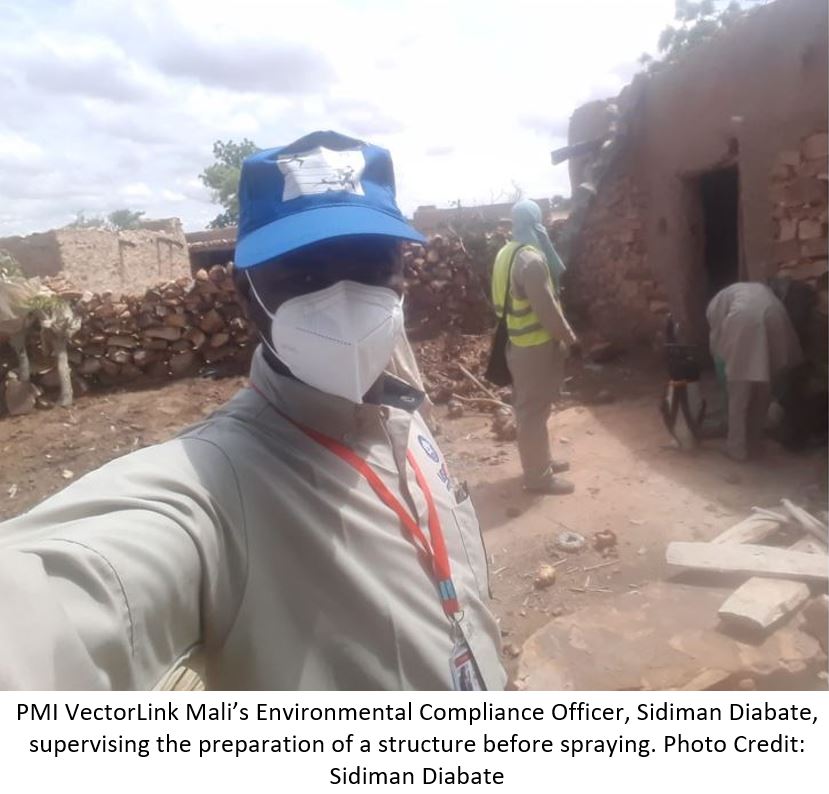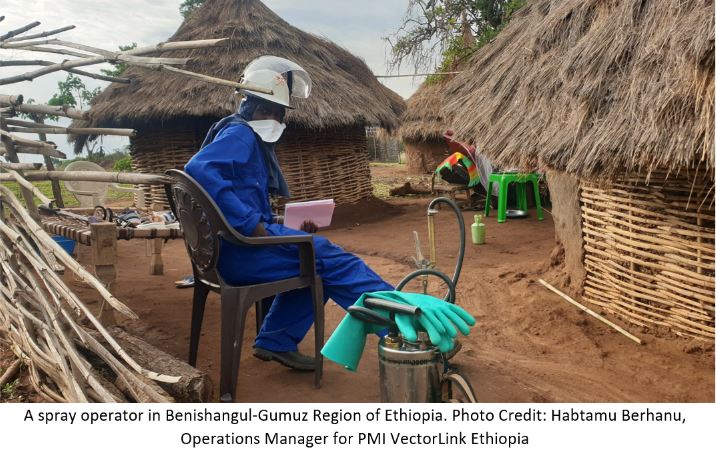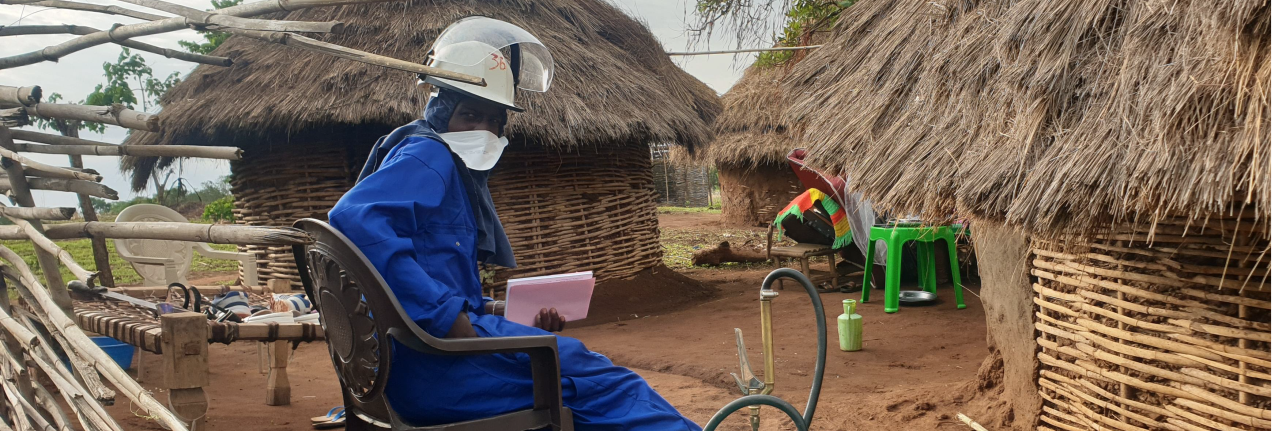In the face of the ongoing COVID-19 pandemic, climate change, and security challenges, malaria prevention is as crucial as ever. The U.S. President’s Malaria Initiative (PMI) VectorLink Project supports countries that carry out indoor residual spraying (IRS) and distribute insecticide-treated nets (ITNs) to kill malaria-transmitting mosquitoes. Recurring conflict in Mali led to challenges in preparation for the IRS campaign, and Ethiopia’s unstable security situation caused delays or suspension of IRS operations in impacted districts. To be effective, IRS spray coverage needs to reach at least 85%. Despite the challenges, PMI VectorLink Mali and Ethiopia demonstrated grit and flexibility, enabling both teams to successfully complete their 2021 IRS campaigns with high spray coverage.

In Mali, the PMI-supported IRS campaigns are in the Mopti region. This region has security conditions which make certain target communities inaccessible to non-residents. In preparation for an IRS campaign, the Environmental Compliance Officer (ECO) must inspect and rehabilitate all operations sites using a mobile checklist prior to the delivery of insecticide to the site.
Due to the security conditions in the Mopti region, PMI VectorLink Mali’s ECO worked closely with the nurse in charge of the health post for the area to remotely conduct the inspections and take requisite photos for both initial and final pre-season environmental compliance assessments (PSECAs). The nurse led the site rehabilitation with guidance and recommendations from the ECO at every step of the way. Using pictures, they had daily discussions to ensure adequate quality. As a result, the PMI VectorLink Mali team was able to obtain the authorization to deploy insecticide on time in all 19 operations sites.
In Ethiopia, the first two phases (out of three phases total) of PMI VectorLink’s 2021 IRS campaign occurred in areas with recurrent ethnic conflicts, which resulted in postponing or suspending operations in 14 out of 42 districts from those phases. In nearby districts, the IRS campaign experienced minor delays due to rental vehicle drivers’ hesitancy to travel to these volatile areas. The PMI VectorLink team went to extraordinary lengths to arrange transportation using locally available resources in some districts and changed the IRS implementation model from district-based to community-based in others, thereby prioritizing community ownership and minimizing the need for travel. Despite these setbacks, PMI VectorLink in collaboration with dedicated local partners, managed to start operations in all districts within a few days of the scheduled start date.
The success of the first two phases is a glowing testament to the mutual trust and confidence PMI VectorLink built with regional and district health bureaus, which enabled the team to pivot to community-based IRS where needed, engage local (Kebele) administrations and health extension workers (HEWs), and protect as many people as possible from malaria. When the national election date shifted from June 5th to June 21st, the team shifted IRS operations, too. The plans for phase three (which included six new IRS districts in a new region) were designed in a flexible manner in anticipation of possible election-related interruptions. The team was able to adapt the activity schedule with minimal disruptions.

When communities are inaccessible due to security challenges, communities impacted tend to be the most vulnerable to malaria. Working with local partners, such as the nurse in charge of the health post in Mali and the local administrations and HEWs in Ethiopia, enables malaria prevention services to be delivered to those that need protection against malaria the most.


